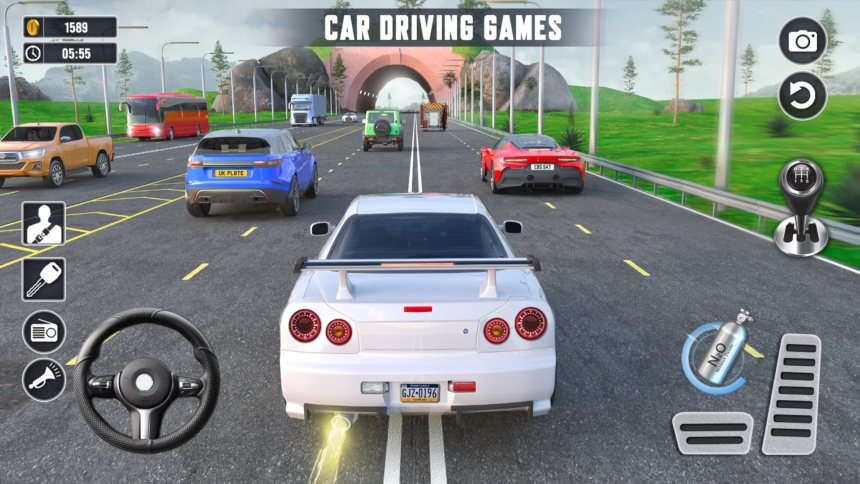Introduction to highway road racing
Highway road racing isn’t just about speed; it’s a thrilling dance between man, machine, and the open road. The adrenaline rush of navigating twists and turns at breakneck speeds can be addictive. Whether you’re a weekend warrior or dreaming of professional circuits, mastering this exhilarating sport takes skill, strategy, and preparation.
But where do you start? With so many factors to consider—from selecting the perfect car to honing your driving techniques—navigating the path to becoming a pro can feel daunting. Fear not! We’ve crafted an essential guide that breaks down everything you need to know into ten straightforward steps. Buckle up as we dive into the world of highway road racing and get ready for the ride of your life!
Understanding the rules and regulations
Understanding the rules and regulations is crucial in highway road racing. Each state, region, or country may have different laws governing this thrilling sport.
Before hitting the asphalt, familiarize yourself with local traffic laws. Ignoring these can lead to hefty fines or worse—legal troubles that could derail your racing dreams.
Racing organizations often set specific guidelines for events. These cover everything from vehicle specifications to safety measures. Not adhering to these standards can result in disqualification.
Ensure you understand flag signals used during races; they provide essential information about track conditions and incidents ahead.
It’s wise to stay informed about insurance requirements and liability waivers when participating in any event. Being knowledgeable keeps you safe and enhances your overall experience on the racetrack.
Choosing the right car for road racing
Selecting the right car for highway road racing can make all the difference. You want a vehicle that not only handles well but also accelerates quickly and has a solid top speed.
Start by considering your budget. Sports cars, like the Ford Mustang or Chevrolet Camaro, are popular choices due to their performance capabilities. However, don’t overlook lighter models such as Miatas or Civics; they offer agility and responsiveness.
Think about modifications too. Some racers prefer stock vehicles while others invest in upgrades for better handling and power output. Research what works best for your style of racing.
Consider reliability. A breakdown mid-race can ruin your day. Choose a model known for durability so you can focus on mastering the track rather than worrying about mechanical issues during competition.
Preparing your car for the race
Preparing your car for highway road racing is crucial for performance and safety. Start by giving it a thorough inspection. Check the tires; they should have ample tread and be properly inflated. Inflate them to the recommended pressure, as this impacts handling.
Next, evaluate the brakes. Ensure brake pads are in good condition, with no signs of wear or damage. Fluid levels also matter—top off brake fluid and coolant to avoid overheating during intense laps.
Don’t forget about the engine! Change the oil if it’s due, and inspect belts and hoses for any cracks or leaks. A well-tuned engine will respond better under pressure.
Lighten your load when possible. Remove unnecessary items from inside the car that could weigh you down on race day. Every detail counts in achieving optimal speed on the track!
Safety precautions and equipment
Safety should always be your top priority in highway road racing. Proper precautions can make the difference between a thrilling experience and a dangerous mishap.
Start with high-quality safety gear. A well-fitted helmet is essential, as it protects your head from impacts. Look for one that meets industry standards for maximum protection.
Next, invest in fire-resistant clothing. This includes gloves, suits, and shoes made from materials designed to withstand heat and flames.
Don’t overlook your vehicle’s safety features. A roll cage can protect you during flips or collisions by providing structural integrity to the car’s chassis.
Always have proper seat belts installed; harness systems are preferred for better support during high-speed maneuvers.
Consider carrying a first aid kit in your car as well. It’s wise to be prepared for any unforeseen incidents that might occur on race day.
Mastering the basics: braking, accelerating, and cornering
Mastering the basics is crucial in highway road racing. It all starts with braking. Knowing when to apply pressure can make a world of difference. Too soon, and you lose speed; too late, and you’re risking control.
Next up is acceleration. Smoothly applying throttle after exiting a corner gives you an advantage on straightaways. Understand your car’s power band for optimal performance.
Cornering requires finesse as well. Enter the turn wide, then tighten your line while maintaining speed. Your body will naturally want to fight against G-forces but stay relaxed behind the wheel.
Practicing these techniques repeatedly helps build muscle memory. The more familiar you are with your car’s response, the better decisions you’ll make during races.
Focus on each element individually before bringing them together into a seamless driving experience. These fundamentals lay the groundwork for advanced maneuvers down the road.
Advanced techniques: drafting, overtaking, and defensive driving
Advanced techniques can elevate your highway road racing game significantly. Drafting is a powerful strategy that involves closely following another car to reduce aerodynamic drag. This allows you to conserve energy and gain speed, making it easier to overtake.
Overtaking requires precision and timing. Look for opportunities where the other driver may be distracted or slowed down by a corner. Cut in swiftly but safely, ensuring you signal your intentions clearly. The key here is confidence without recklessness.
Defensive driving keeps you safe while on the offensive. Anticipate moves from competitors and position yourself accordingly. Always maintain awareness of your surroundings; know when to hold back or push forward based on what others are doing around you.
Mastering these advanced techniques takes practice, patience, and keen observation skills—essential traits for any serious racer looking to improve their performance on the open highway.
Mental and physical training for road racing
Mental toughness is crucial in highway road racing. The ability to stay focused under pressure can make a significant difference during a race. Visualization techniques can help you anticipate challenges and prepare mentally for each corner or straightaway.
Physical fitness also plays an important role. Endurance training will keep your energy levels high throughout the race. Incorporating strength training enhances control over the car, especially during sharp turns and sudden maneuvers.
Yoga or meditation practices can improve concentration and reduce anxiety on race day. Breathing exercises are essential for maintaining calmness while navigating intense situations.
Don’t forget about reaction speed; quick reflexes can save time in critical moments. Video simulations of races can sharpen your decision-making skills too, allowing you to practice scenarios without being on the track.
Balancing mental conditioning with physical preparation creates a well-rounded racer ready for any challenge that comes their way.
Finding a mentor and joining a racing community
Finding a mentor can be a game-changer in your highway road racing journey. Seek out experienced racers who are willing to share their knowledge and insights. Their guidance can help you navigate the complexities of the sport more effectively.
Joining a racing community offers support, camaraderie, and resources. Look for local clubs or online forums where enthusiasts gather to discuss techniques, events, and experiences. Networking within these communities can open doors to valuable learning opportunities.
Attend meetups and races whenever possible. Engaging with fellow race fans not only enhances your skills but also fosters friendships built on shared passions. The bonds formed here often lead to collaborations that elevate everyone’s performance on track.
Participating actively will keep you motivated and inspired while pushing you to refine your craft continually. With mentorship and community backing, you’ll grow faster as both a racer and an individual in this thrilling world.
The importance of practice and never giving
Practice is the heartbeat of highway road racing. The more you race, the better you will understand your car and its capabilities. Each lap teaches valuable lessons about handling, speed management, and strategy.
Consistency is key. Regular practice helps build muscle memory for those critical moments during a race when split-second decisions matter most. You’ll learn to anticipate turns, gauge braking points, and predict how other racers might behave on the track.
Never underestimate the power of persistence either. Every racer has faced setbacks—mechanical failures or less-than-optimal finishes—but those experiences can fuel improvement rather than discourage it. Use each challenge as a stepping stone to refine your skills.
Find ways to mix up your training sessions too; work on various aspects like cornering techniques one day and acceleration drills another day. It keeps things fresh while ensuring you’re well-rounded as a driver.
Remember that even pro racers spend countless hours honing their craft off-track in simulators or during practice runs before major events. Commitment fuels progress in this sport just as much as talent does.
Embrace every opportunity to get behind the wheel because with dedication comes mastery—a vital lesson for anyone serious about excelling in highway road racing!








